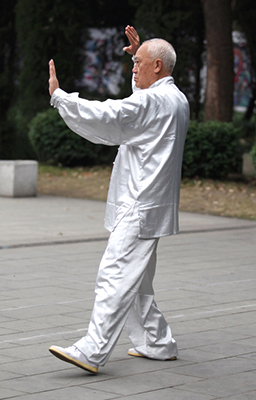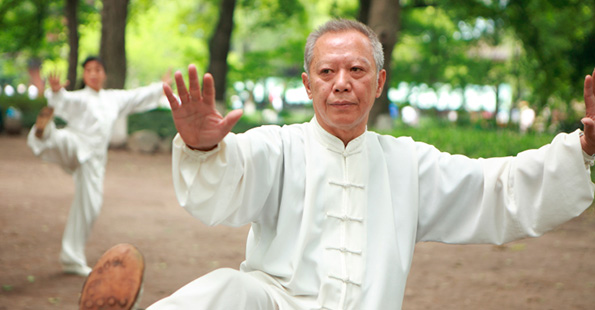I remember while I was in class with one of my first Tàijíquán teachers, the legendary Madam Wang Jurong, and my hand position was incorrect. We were practicing 24 simplified form, but I was holding my hand in position of a different style of Tàijí.
Madam Wang quickly stopped me, and in her stilted English demanded that I practice “Yang-style, like Yang-style and Chen-style like Chen-style.” She went on to say, “When you are a master, you can decide if you want to mix movements from other forms.”
I was new to Tàijíquán and had not learned Bob Flaw’s concept of mastery, so I ignorantly asked Madam Wang, “How will I know when I’ve mastered enough Tàijí to do that?”
Her response, uttered with a sarcastic grin was, “If you have to ask, you aren’t a master yet.”
I get it now, but apparently, many teachers of Tàijíquán don’t.
 This method of skipping the memorization in lieu of the “big picture” often leads to sloppy movements in Tàijíquán, completely overlooking concepts such as “maintaining Peng” (掤). When I have questioned some of these teachers about the lack of precision in their study, their answer was, “I teach Tàijí for health only, I’m not into the fighting or violence.” What these teachers fail to realize is that sloppy movements from a martial perspective also interfere with energy circulation and deplete Tàijíquán’s ability to promote health.
This method of skipping the memorization in lieu of the “big picture” often leads to sloppy movements in Tàijíquán, completely overlooking concepts such as “maintaining Peng” (掤). When I have questioned some of these teachers about the lack of precision in their study, their answer was, “I teach Tàijí for health only, I’m not into the fighting or violence.” What these teachers fail to realize is that sloppy movements from a martial perspective also interfere with energy circulation and deplete Tàijíquán’s ability to promote health.
I have met teachers who were so averse to memorization of basics during training that they skipped fundamentals such as stance training. When I asked, they couldn’t describe a “Bow Stance” (弓步) or a “Four-six Stance” (四六步). But what these teachers fail to realize is that stance training actually makes learning Tàijíquán easier. Depending on the style of Tàijíquán practiced, there are usually only a half-dozen stances, while there are thirty or forty hand positions. Once the stances become second nature, hand positions—which are far more complicated and numerous—can be learned with relative ease.
I don’t think of myself as a master, merely a teacher who’s been at this for a while, but dogged practice of the basics has benefited me greatly. After 20+ years of Tàijíquán study, and almost a decade practicing Traditional Chinese Medicine, I have finally been able to take knowledge from both those sources, combining it into something new. This has allowed me to develop and understand a unified theory of exactly how the Tàijíquán movements circulate Qì (氣) through the body as well as how this is tied to the development of power (Jin 勁).
When I was younger, I often wondered why my Chinese teachers shied away from teaching or talking about deep concepts such as this, but now I understand. My teachers wisely knew that if they skimped on the basics and offered this advanced level of knowledge too freely, then the student would never master the art, they would simply stand on the shoulders of greatness and only achieve mediocrity.
This being said, isn’t it a good time to review your basics?

Leave a Reply